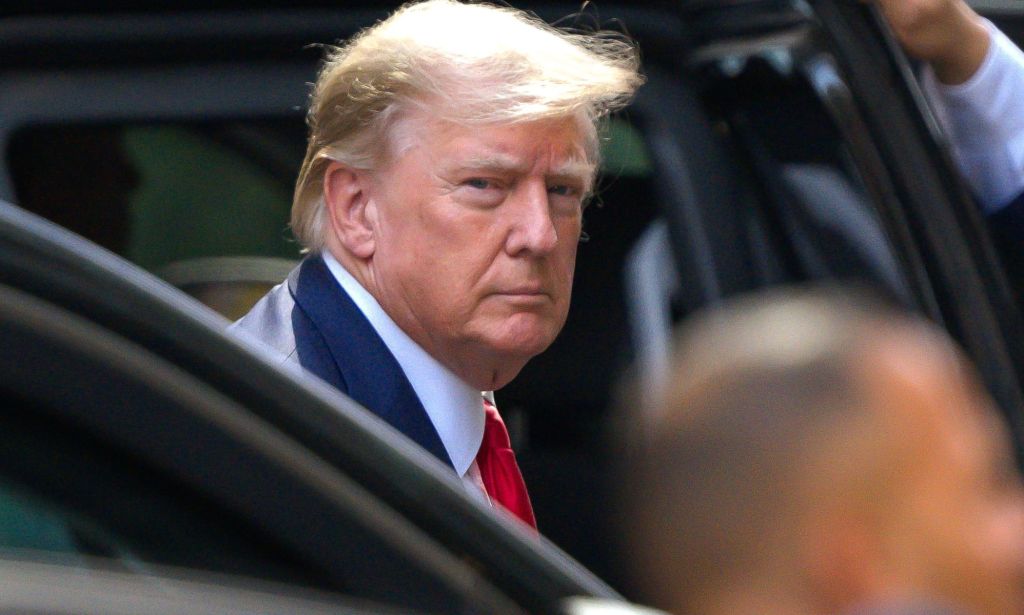Could Donald Trump become a dictator if he wins the 2024 election?

Donald Trump has said he would only be a dictator on “day one”. (Getty)
If there’s one thing Donald Trump is good at, it’s putting his foot in it.
The disgraced former president, currently battling to win back the White House, put himself in the firing line when he refused to rule out abusing his power, during a televised event in Iowa on Tuesday (5 December).
When asked by Fox News host Sean Hannity if he would promise the American people that he would never “abuse power as retribution against anybody” if he wins next year’s presidential election, Trump replied: “Except for day one.”
The former president added that, on the first day of any second term, he would shut the border with Mexico and expand oil drilling.
“I love this guy,” Donald Trump said of Hannity. “He says: ‘You’re not going to be a dictator, are you?’ I said: ‘No, no, no, other than day one. We’re closing the border and we’re drilling, drilling, drilling. After that, I’m not a dictator’.”
It’s not exactly encouraging rhetoric from a man who, among other charges, a court has decided can sued for allegedly inciting the 6 January Capitol riot. It’s certainly not beyond the realms of possibility that he could win the election – he is the Republican frontrunner, and his supporters have never gone away.
Donald Trump has ‘traits’ of a dictator
Dr Edward Goldring, a politics lecturer at the University of York and author of Purges: How Dictators Fight to Survive, says it’s not impossible for Trump to emerge as a dictator.

“It’s a really interesting question. On one level, yes, I think he does the traits of a dictator in that he’s telling us he does. So, for me, this is a question about motivation. Does Trump have the motivation to become a dictator?
“I would argue yes, because he’s telling us he does.”
Goldring’s perspective has little to do with Trump’s most-recent comments, which the author described as muddled.
“The two actions he referred to [closing the border with Mexico and expanding oil drilling] have nothing to do with being a dictator,” Goldring points out.
But other actions he’s proposed for his next presidency would align him with past dictators, or at the very least with hard-line right-wing leaders such as Brazil’s former president Jair Bolsonaro.
“Actions he’s already proposed, like replacing tens of thousands of bureaucrats in [Washington] DC… clamping down on free media. They would certainly concern me,” Goldring says.
Phillip Ayoub, a professor of international relations at University College London, agrees that there’s a real threat that Trump could grasp “unprecedented power” if re-elected.
“He has already named political opponents he wishes to target,” Ayoub says.
“He would obviously have to win the election, but he is clearly positioned to clinch the Republican nomination, and Biden’s dwindling poll numbers – exacerbated by his position on Israel’s war – make a Trump win a serious possibility.
“If he were to win, he would enter an office with fewer and fewer untapped constraints on his power. Congress’ ultimate threat to hold him accountable for breaching the norms of office, that of impeachment, has already demonstrated its limitability in past attempts.
“The justice system has struggled to hold him to account.”
A lot could happen before the election, which takes place in November, but with Trump in the mix, one thing is certain: it’s always possible for things to get worse.

